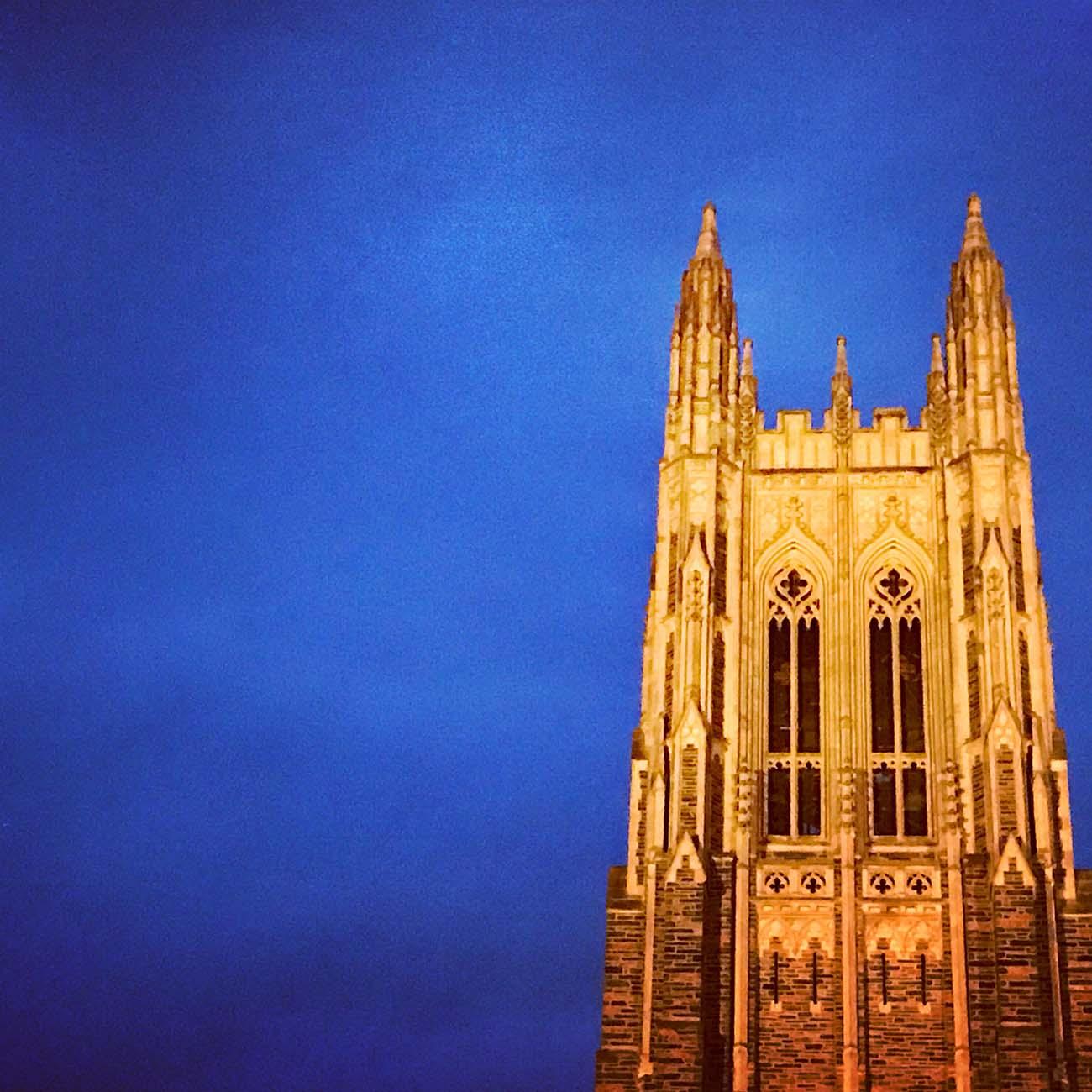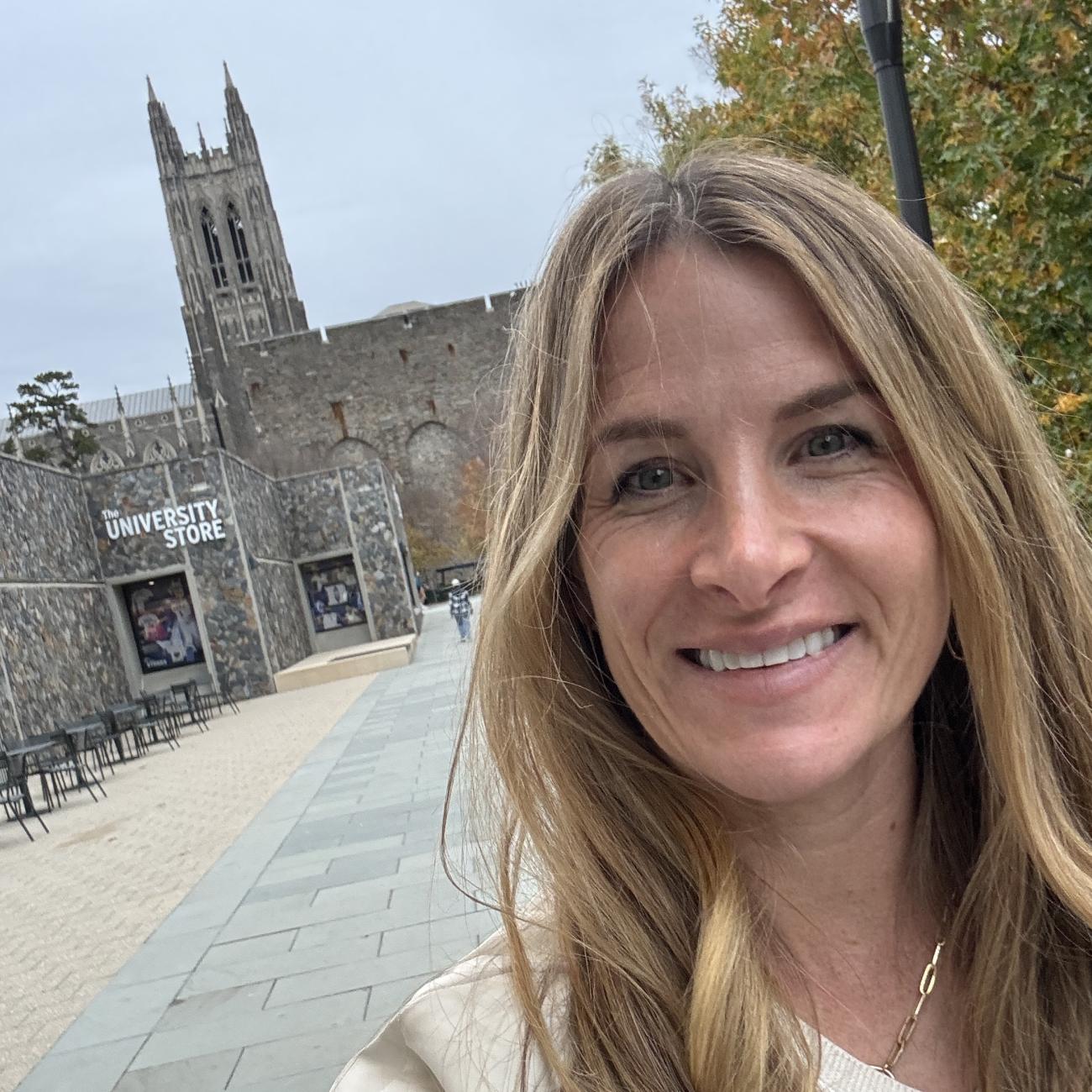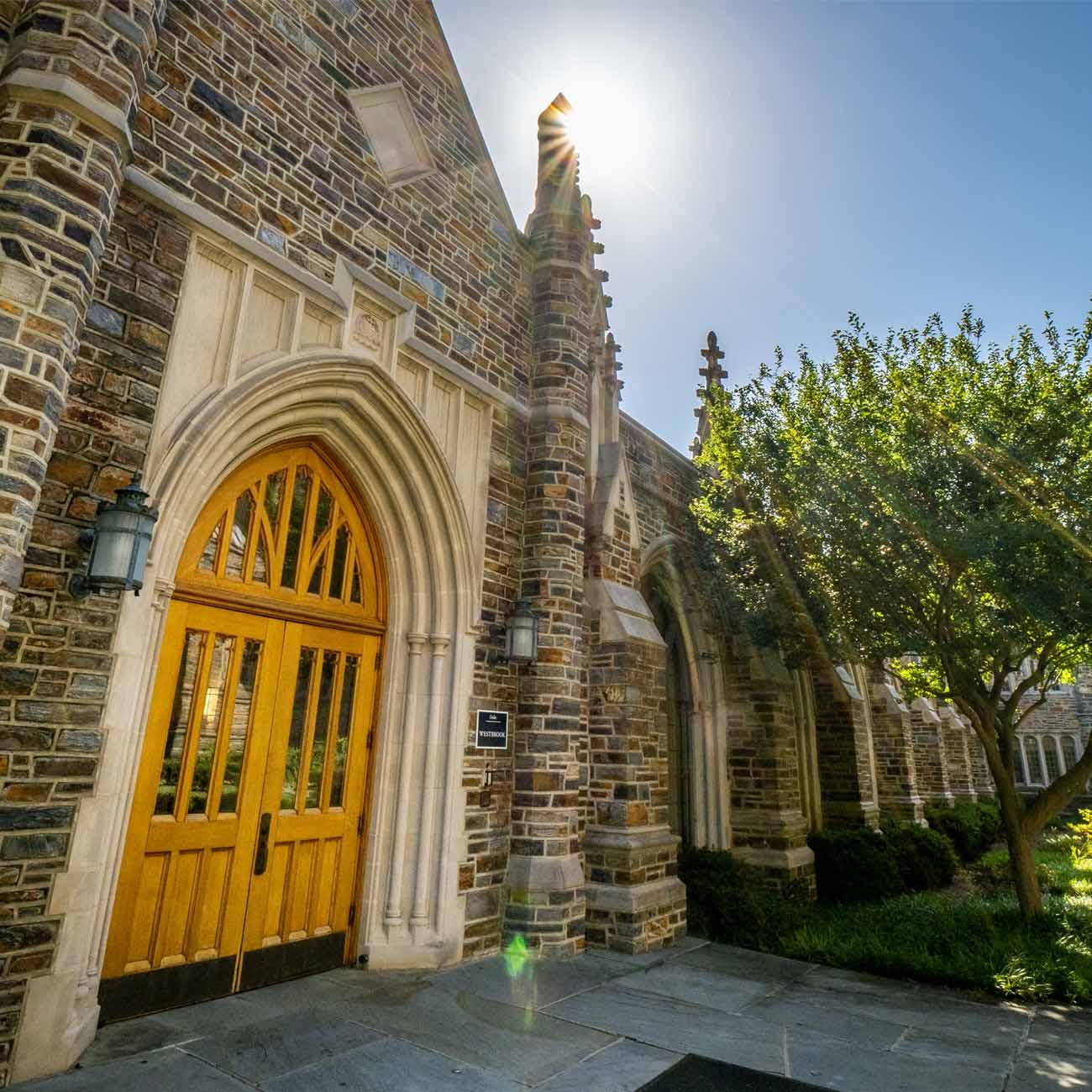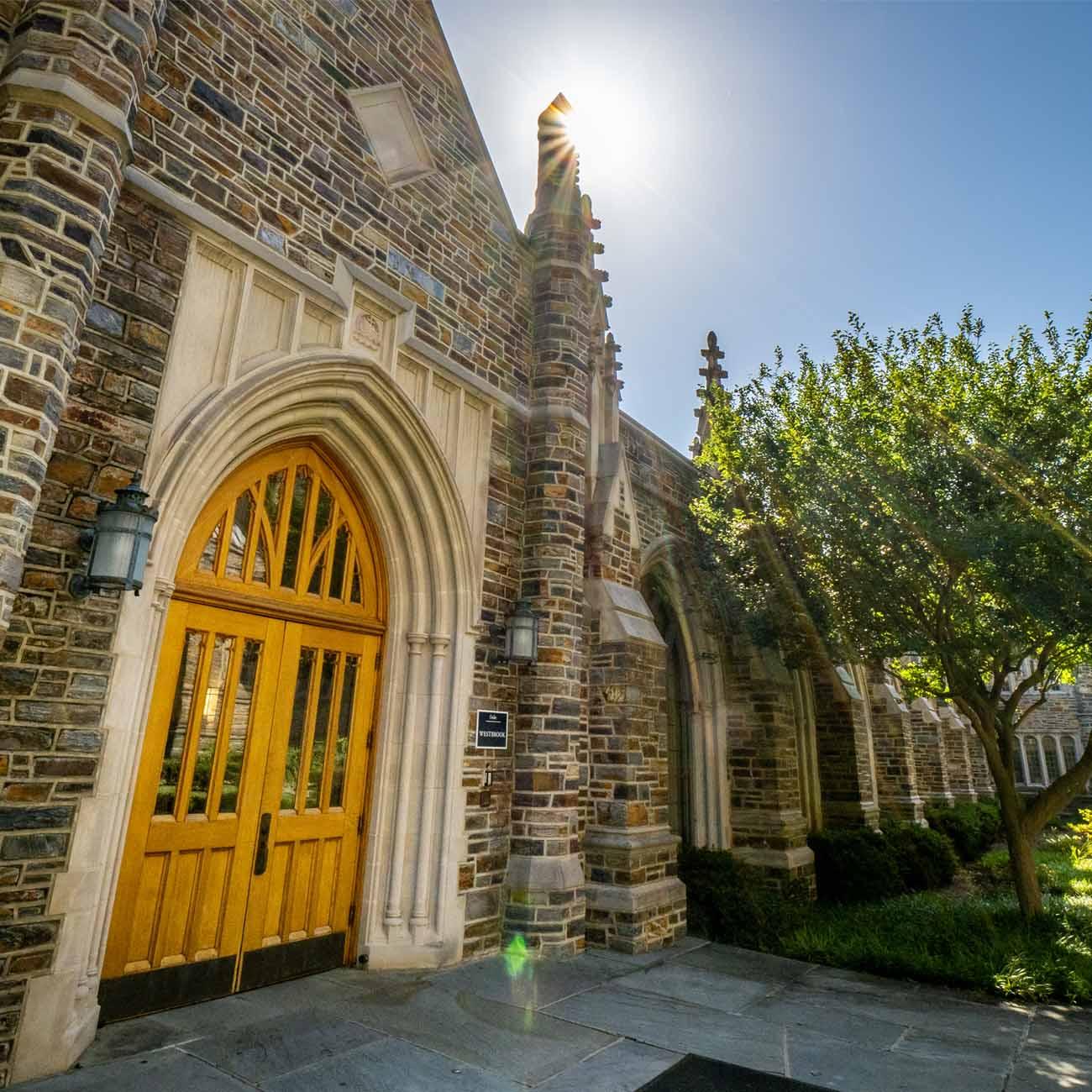Duke Divinity Announces Three New Faculty Will Join the School
Duke Divinity School has announced the hiring of three new faculty members, each of whom adds to the strengths and gifts of one of the world’s most outstanding divinity faculties.
With expertise ranging from the Reformation era in the history of Christianity, to Methodist and Lutheran studies, to Latinx theology, these new faculty—Polly Ha, Ronald Rittgers, and Daniel Castelo—demonstrate Duke Divinity’s continued commitment to excellent faculty and the vital formation of students who will be prepared to serve the church, academy, and world.
L. Gregory Jones, the dean and Ruth W. and A. Morris Williams Distinguished Professor of Theology and Christian Ministry, noted the welcome addition of Ha, Rittgers, and Castelo to the Duke Divinity faculty: “These new colleagues further strengthen our faculty and offer distinctive and complementary gifts. We are thrilled that they will be joining the Duke Divinity School community.”
Polly Ha, Associate Professor of the History of Christianity
Polly Ha’s work focuses on the history of Christianity and the construction of diverse confessional and ecclesiastical traditions in the Reformation and post-Reformation world. She specializes in reception studies of the Reformation, ecclesiastical thought, historical method, political theology, and the wider impact of reformation on men and women across the social order.
She has published numerous articles on reformation reception and co-edited a volume with Patrick Collinson on The Reception of Continental Reformation in Britain (Oxford University Press, 2011). Her monograph, English Presbyterianism, 1590–1640 (Stanford University Press, 2011), challenged traditional assumptions about the development of reformed polity in pre-civil war England and the nature of popular participation in reformed communities by analyzing English exiles in the Netherlands and New England.
Ha’s work also addresses the political and social research of ecclesiastical independence in the English Revolution, its expansion of classical notions of liberty, and implications for the freedom of speech, association, consent, and conscience. She is chief editor of The Puritans on Independence (Oxford University Press, 2017) and Reformed Government (Oxford University Press, 2021), which include debates over conciliarism, historical contingency, and institutional mutability in response to Richard Hooker’s Laws of Ecclesiastical Polity. She is currently working on the longer-term impact of reformation, reconfigurations of the relationship between religion and politics, and broader intellectual change and social innovation in the sixteenth and seventeenth centuries.
Ronald K. Rittgers, Duke Divinity School Chair in Lutheran Studies and Professor of the History of Christianity
Ronald Rittgers’s research interests include the religious, intellectual, social, and cultural history of medieval and early modern/Reformation Europe, focusing especially on the history of theology and devotion. Rittgers has also served as the president of the American Society of Church History.
His many publications include articles and book chapters in addition to books: The Reformation of the Keys: Confession, Conscience, and Authority in Sixteenth-Century Germany (Harvard University Press, 2004); The Reformation of Suffering: Pastoral Theology and Lay Piety in Late Medieval and Early Modern Germany (Oxford University Press, 2012); The Reformation Commentary on Scripture: Hebrews and James (Intervarsity Press, 2017); a co-edited volume, Protestants and Mysticism in Reformation Europe(Brill, 2019); and A Widower’s Lament: The Pious Meditations of Johann Christoph Oelhafen (Fortress, 2021).
His next research will examine the intersection of consolation and self-understanding in the Age of Reform and also on the history of disenchantment in the Reformation and beyond. He additionally intends to work on essays that examine lament and love of God, respectively, in the theology of Martin Luther.
Daniel Castelo, William Kellon Quick Professor of Theology and Methodist Studies
During his doctoral work at Duke University, Daniel Castelo taught intensive Wesleyan theology courses in Mexico, Honduras, and Brazil, and then took a teaching post at a Mexican seminary for three years. For the past 14 years, he has taught dogmatic and constructive theology at Seattle Pacific University. He has been an active participant in the Central American Methodist Course of Study program and recently has served as a doctoral mentor for the Hispanic Theological Initiative.
Castelo’s publishing includes the monograph The Apathetic God, for which he won a John Templeton Award for Theological Promise. He proceeded to consider questions surrounding a Christian account of theodicy (Theological Theodicy), the doctrine of God broadly (Confessing the Triune God), and the theological interpretation of Scripture (the co-authored Hosea [THOTC] and The Marks of Scripture). Additionally, he has focused on the theology of renewal movements (Pentecostalism as a Christian Mystical Tradition and the edited Embodying Wesley’s Catholic Spirit) and Christian pneumatology (Pneumatology: A Guide for the Perplexed and the co-edited T & T Clark Handbook of Pneumatology). Castelo’s current research explores Latinx theology and a Wesleyan doctrine of God.
Edgardo Colón-Emeric, the Irene and William McCutchen Associate Professor of Reconciliation and Theology; associate dean for academic formation; director of the Center for Reconciliation; senior strategist for the Hispanic House of Studies, and incoming dean of Duke Divinity School on July 1, added: “I am delighted to welcome these gifted colleagues. As renowned scholars of the Reformation, Ron Rittgers and Polly Ha embody and elevate the Divinity School’s commitment to academic excellence in service to the church. Daniel Castelo’s knowledge of Wesleyan, Pentecostal, and Latinx theologies is key to our ongoing rediscovery of the heart of Methodism at Duke. All three will be wonderful companions on our common journey of renewing Christian imagination for a transformed world.”












